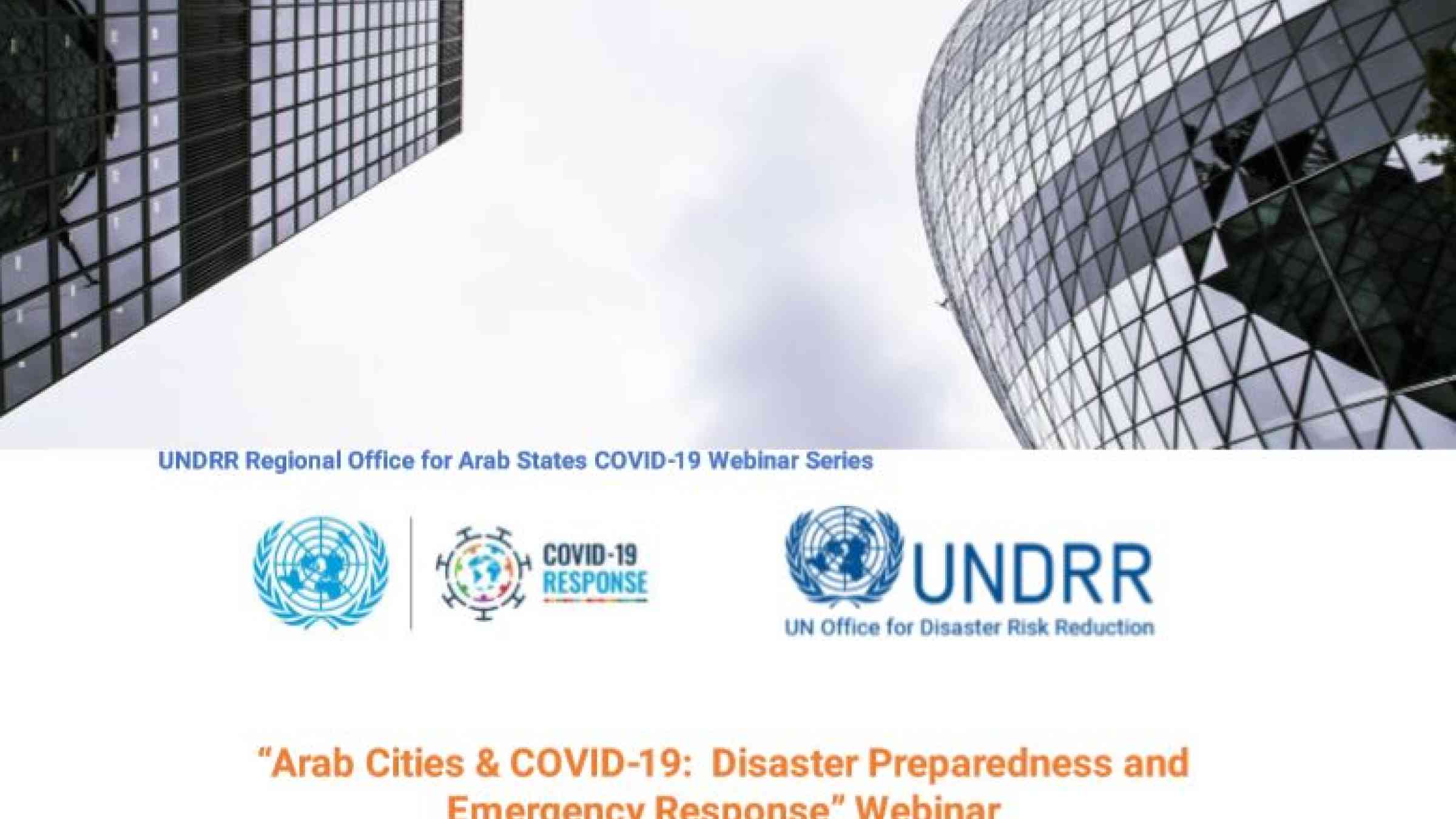Arab Cities & COVID-19: Disaster Preparedness and Emergency Response

The main objective of the webinar is to discuss the lessons learned in responding to COVID-19 by Arab cities and facilitate a city-to-city exchange among local governments on effective emergency preparedness and response that is sensitive to biological hazards. The webinar will discuss the socio-economic impacts of the pandemic, context-specific and rapid rescue measures taken by cities to protect vulnerable populations and sustain the provision of basic services and how these measures can help build back better and promote cities' long-term resilience.
Background:
Local governments have always been on the front-line in responding to emergencies varying from natural to man-made hazards to the current COVID-19 pandemic, which is adding more pressure on those systems. The levels of preparedness vary from one place to another according to a set of contextual factors such as population densities, geographical location, and levels of exposure to rapid onset natural hazards as well as the socio-economic characteristics of the residing populations. Cities with a high concentration of urban poor, informal settlements, lack of planned and adequate infrastructure are more likely to be vulnerable to disasters than well resourced, less crowded, inclusive and more sustainable cities.
National and local governments in the Arab region have undertaken timely actions to contain the virus and respond to its threats on their health systems, economy and society. The 2030 Agenda for Sustainable Development, Paris Agreement for Climate Change, Sendai Framework for Disaster Risk Reduction and the New Urban Agenda all recognize the importance of action by local governments to create inclusive, safe, resilient and sustainable human settlements. This could only be possible through implementing integrated plans towards inclusion, resource efficiency, mitigation and adaptation to climate change and holistic disaster risk management in line with the Sendai Framework.
Globally, the role of cities during the early phase of response to COVID-19 has been characterized by their work on limiting disease transmission through implementing physical distancing and other pertinent containment measures. However, given the wide variety of socio-economic, demographic and geographical characteristics of cities, the implementation of such response measures has varied in degrees of capacity and success. For instance, population densities in some Arab cities have posed a burden on the implementation of physical distancing; the Arab population is constantly growing and has reached more than four times its size since 1970 and is expected to double by 2050. The impact of COVID-19 on vulnerable populations is disproportionate, as Migrants and Refugees; the Poor; Homeless people; Older persons; Informal settlements; Women; Children; Persons with disabilities; and Socially marginalized groups all face heightened level of exposure to diverse hazard risks during this crisis, making it important to identify those vulnerable groups and tailor protective measures to support them during the response and recovery phases.
Building on the lessons learned from the Making Cities Resilient Campaign and the objectives of the Issue- Based Coalition on Urbanization (IBC-U)* in the Arab Region, the IBC-U is organizing a best practices webinar to extend its support to cities at the frontline of the fight against the COVID-19.
Webinar Goals:
- To provide an overview of the role of cities and local governments in the Arab region in COVID-19 immediate response;
- To discuss the different challenges faced by cities in the region in the wake of the COVID-19 with a focus on vulnerable populations;
- To share highlights of response efforts that are tailored to the needs of the different vulnerable groups;
- To share best practices and innovative solutions to the health, social and economic risks caused by the COVID-19.
- To examine how the COVID-19 immediate response could support the region’s transition to more inclusive and more resilient societies.
Language: English/ Arabic / French
To attend, kindly register here: https://undrr.zoom.us/s/93779147451?pwd=aTQzWldjcUVLUnlnSEVCeTJiRWs3UT09
*IBC-U was established in 2020 with the membership of 9 UN agencies (UNEP, UN-Habitat, UNESCWA, UNDRR, WHO, IOM, UNOPS, WFP, UNESCO,) in response to the global UN reform initiatives to strengthen regional collaboration and provide coherent and effective normative guidance and technical support to promote sustainable urbanization in Arab countries.